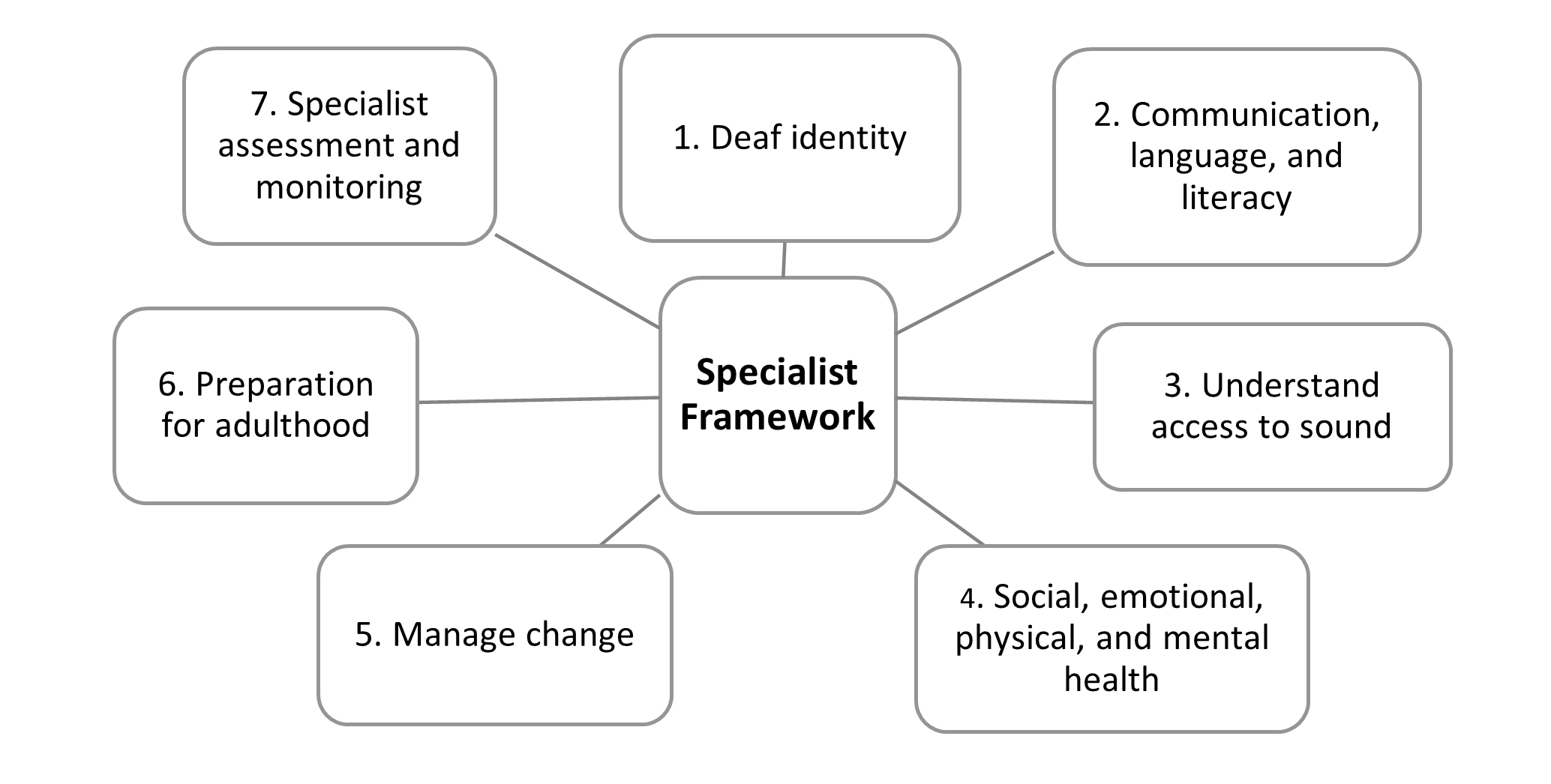7. Specialist assessment and monitoring
Qualified Teachers of Deaf Children and Young People (QToDs) need to have due regard for the guiding principles of assessment, following cycles as relevant to local legislation. The range of types of assessment are vast and there needs to be a clear rationale for the choices made about assessment carried out. Assessments must be age appropriate, holistic, and with input from families and the deaf child/young person DCYP themselves when they are able to. The aim of reporting on assessments is to ensure they are jargon free and understood by the DCYP, their families, and key stakeholders. Using terminology such as ‘not yet’ as opposed to ‘not able to’ is likely to result in a more positive interpretation of assessments and outcomes. The aim of specialist assessments is to guide input and support for DCYP and without judgment of skills and abilities.
The role of the QToD is often to support accessibility in assessment and also to provide interpretation to support understanding of the assessments carried out by others. DCYP are often assessed by others, eg SLT, educational psychologist (EP), audiology, SENDCO/ALN co-ordinator. Taking a balanced approach and ensuring assessments are carried out by suitably qualified people who know the child well will help to minimise any stress that testing may cause. QToDs will be mindful of timescales, frequency, and making sure there isn’t any duplication.
Please also refer to Section 6 which outlines the necessity for access arrangements for exams and statutory assessments.

7a. Assessments
For more information on this resource or if you would like to make a suggestion or contribution, please send an email to: [email protected]
Download the Specialist Deaf Curriculum Framework quick overview document via this link.
Download the Word document version Specialist Deaf Curriculum Framework via this link.
Resources
Please note: Some of this information has been archived and as such may be out of date or no longer relevant.

